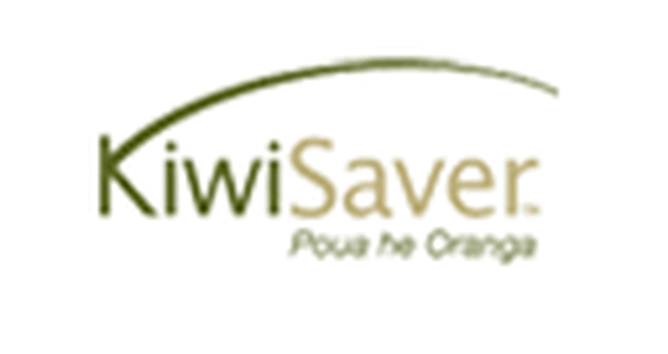Have you participated in the 'What is your number' campaign to see if you can get your Electricity cheaper? If not, check it out at What is My Number?
This service is provided by the Productivity Commission to increase competition and there have been good results as a result of this campaign. On the back of this success, the Productivity Commission is now looking at other products and services to provide such a comparison for consumers.
One of the products that they have proposed is KiwiSaver. This is not a suitable option for such a comparison, as the price that you pay for your KiwiSaver is a very very small part of how well your KiwiSaver fund works for you.
Moneyworks NZ Ltd have put in a submission to the Productivity Commission about why we believe that this is not a suitable product for this type of analysis and campaign.
Why is KiwiSaver NOT a suitable option for a 'what's my number' campaign?
Unique characteristics of KiwiSaver
KiwiSaver is not a commodity. Unlike bread, milk, electricity it is not ‘consumed’ and then ‘re-consumed’. It is ‘invested’. A KiwiSaver fund is part of an individuals’ wealth, not something to be chopped and changed.
KiwiSaver is a long term investment. Consequently investors should be looking at their investment for the long term, not changing on a whim. There are costs incurred every time someone changes their KiwiSaver investment (which I have outlined in more detail below).
Uniquely – a person can only have one KiwiSaver investment at any time. Unlike Electricity - where you can have different providers if you have more than one property.
Therefore, by turning KiwiSaver into a commodity – you are dealing with their one option to ‘get it right’, which should not be based on a simple fee analysis.
3. Issues with comparing ‘price’ of KiwiSaver funds
Although on the face of it, it might seem easy to compare KiwiSaver price it is actually quite difficult. I have listed below the variables that need to be taken into account in making the decision.
| Cost to KiwiSaver member | How is it measured | Issues |
| Administration Fee | Most KiwiSaver providers charge a monthly fee. | On the face of it, easy to compare, you just compare $2 a month versus $3.60 a month. However, there are quite a few complications:
|
| Investment Management Fee | Usually Quoted as a percentage of funds invested |
There are a number of other issues, but these are some of the big initial questions. |
| Trustee and Custodian Fee | Usually Quoted as a percentage of funds invested | How will you deal with schemes where this fee has a maximum level? How will you apportion this fee to each individual investor? |
| Claimable Out of Pocket Expenses | These are often for costs like audit, legal, prospectus, investment statement costs These are usually a flat fee charged to the KiwiSaver fund. | How are you going to apportion these fees to each individual investor? As the fund gets bigger, the actual cost to each investor reduces, and this is changing constantly. |
| Costs of selling and buying investments when the KiwiSaver moves provider | To move KiwiSaver provider, there is a REAL cost to the investor. Their investments have to be sold, so that they have cash to move to the new provider. Then their funds have to be reinvested at their new provider. | How are you going to calculate the costs for selling and buying involved in the transfer? These will be different depending on the brokerage agreements that the provider has, the larger funds tend to have lower costs to the investor. |
| Out of market costs | When moving a provider, the KiwiSaver investor has funds that are not invested for a period of time. | How are you going to calculate the cost of this? As a real life example, I moved a locked in Superannuation scheme from Provider A, so that it would be added to my KiwiSaver with Provider B. My investments were sold on the 11th June 2013. They were not received by my KiwiSaver fund until 13th June 2013. That is 2 days when my funds were not invested. How are you going to calculate this cost to the investor? |
Other factors that need to be taken into account when assessing which investment is appropriate for an individual
Price or cost is a very very small part of the decision as to which investment is appropriate for a particular individual. These are other factors that need to be taken into account, which are not formulaic and incorporate some judgment.
Factors to be considered
| Comments | |
| Individuals Risk Profile | This could be Cash, Balanced, Aggressive, or a combination of any number of investment types. You would need to find out what risk profile someone is in, so that you are comparing the same risk profile. However, this is unlikely to be accurate as each fund manager has a different investment strategy for their risk profile. For example a Conservative risk profile could have 40% invested in growth assets, or it could have 20%. You can’t compare the two, they are totally different investment strategies. |
| Investment Returns | This is a key factor that is going to make a difference to the clients long term value of their assets. The investment return varies daily, depending on where the funds are invested and what is happening in the markets. To see how the returns vary for a ‘Balanced’ Fund (which is a risk profile where most providers have around half invested in growth assets and half in non growth assets), look at the article on our blog at http://www.moneyworks.co.nz/blog/kiwisaver-performance-morningstar-survey-june-quarter-2013/. This shows you that in the Morningstar survey to 30/06/2013 the difference from providers for the previous 12 months was a range of 8.7% to 21.1% after fees. For five years the difference was a range from 4.1% to 6.9% pa.How are you going to take this into account in your analysis for investors? What time period are you going to use? (1 year, 3 years, 5 years?) – Why that time period? How often are you going to update this information? What source are you going to use to do this? What are you going to do about the providers that don’t participate? |
| Fees are not an indicator of returns to clients. | The same Morningstar Survey indicates the costs to investors and the investment return. (Review at http://www.moneyworks.co.nz/blog/kiwisaver-performance-morningstar-survey-june-quarter-2013 ). The lowest fee provider is ASB First Choice Tracker Fund, which has a Total Expense Ratio (TER) of 0.56% and a member fee of $36.However, its 5 year return of 5.5% (after fees) is 1.4% pa below the more expensive (at 1.11%, but member fee of $24) fund of SIL KiwiSaver.On a $20,000 portfolio, this is a difference of $140 pa for 5 years – cumulative. Therefore, a difference of a minimum of $700. If the investor had been in SIL Balanced fund instead of ASB Tracker fund, they would be $700 better off in investment returns even though the TER is more expensive.How will you deal with this? |
| Investors Tax rates | How will you incorporate the fact that individual investors have different tax rates – 10.5%, 17.5% or 28% and that this will affect their returns and therefore the ‘total cost’ to them of investing. |
| Choice of having advice or not | Investors can choose to have advisers to assist them with their decision making. How are you going to incorporate this factor in the ‘what is my number’ campaign? Not all funds provide access or funding to an adviser. |
| Transfers from UK Pension providers | This is a valuable role of KiwiSaver providers, yet not all providers offer this facility. How are you going to incorporate this in your analysis framework? |
| Quality of the provider | Who is the organisation that provides the KiwiSaver? Do they have a long track history, or are they new entrants? Who owns them? What recourse is there if they make a mistake? What processes do they have in place to manage the KiwiSaver funds – investment processes, administration processes? Who is the custodian and trustee of the investments? Who are individuals behind these investment decisions? What is their history? |
There are a number of other factors that we as professional advisers take into account when choosing and recommending an investment for a client. This is not a tick by numbers process, and the ‘price or cost’ is a very very small part of the process.
Read our submission below.
13 08 Submission to Productivity Commission on 'what is your number' proposal for KiwiSaver
If you have any thoughts or opinions that you would like to share, visit us at our Twitter, Facebook or Linked In pages, and comment.
For more blog entries that you might be interested in:
KiwiSaver Performance – Morningstar Survey June Quarter 2013
KiwiSaver – How do you measure performance? – Fund Size
KiwiSaver Performance – how do you measure? – Fund Type
By Carey Church






